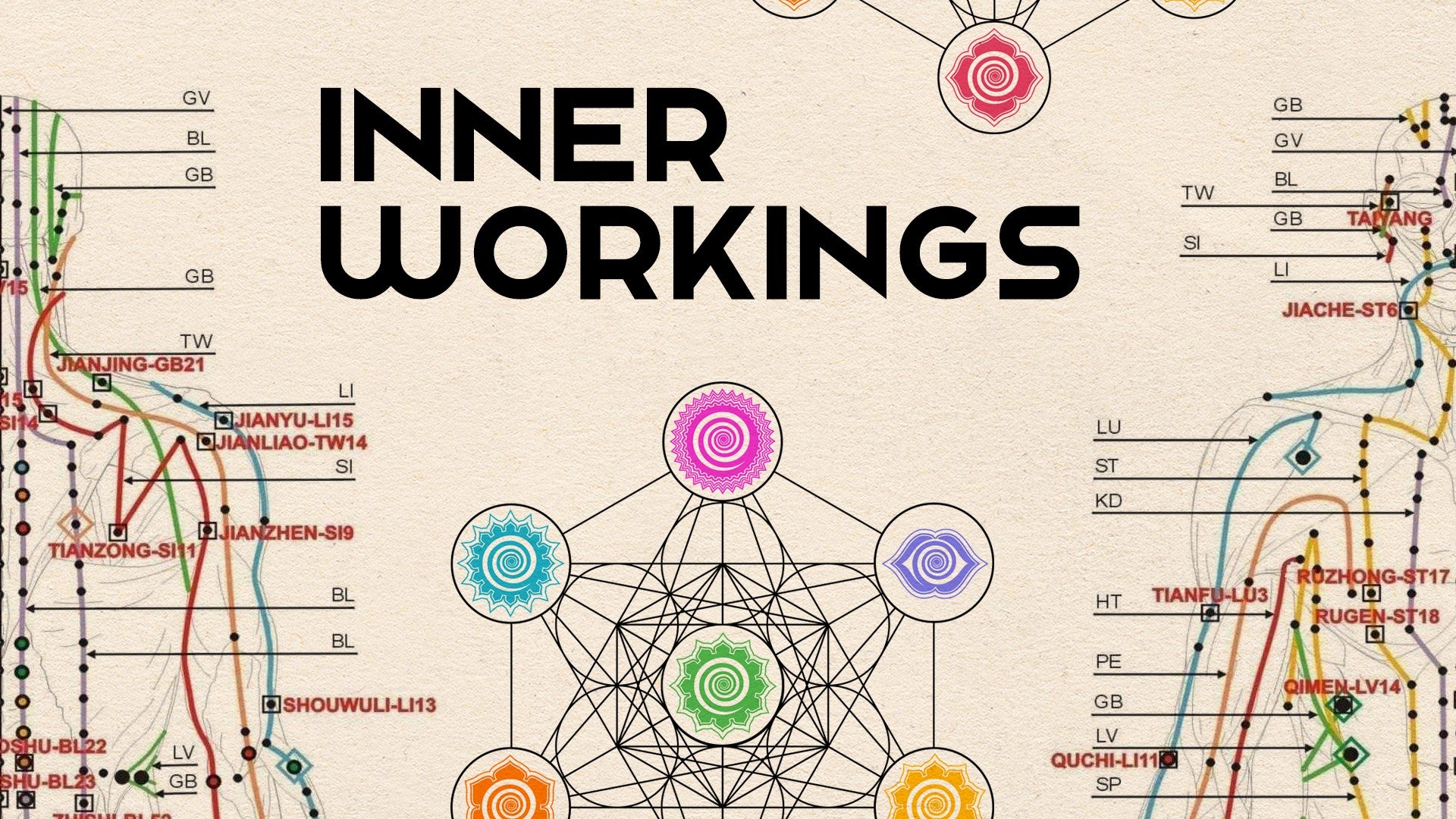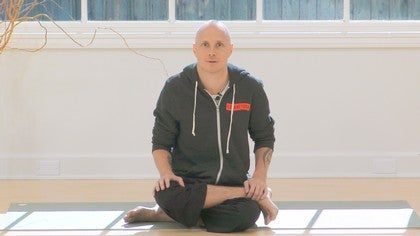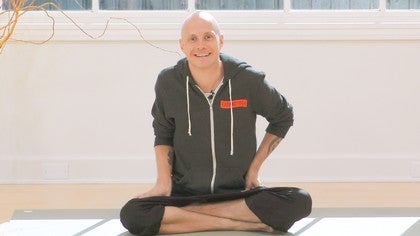Description
About This Video
Transcript
Read Full Transcript
So I was thinking a little bit about subtle body, sukshma sareer. Same way as we have this cross physical body and there's different organs and different limbs, same way you can actually see that in subtle body there's also different parts, but so according to yoga. So there's first part is mind, manas. So it's very difficult to define the mind because it doesn't have any form. Actually mind takes form where it's absorbed in. If I think about red ball then the mind takes the form of the red ball. If I think some sound mind takes the form of the sound. So it's difficult to define the mind. You can describe it same way as I can describe the hand. That hand has five fingers and so on. So mind is a little bit more difficult to define, but you can understand the mind through its functions actually. So what are the functions of the mind? First of all is thinking. If I think something, I can think some sound, I can see some picture in my mind. There's different ways to think. So and also I can feel some sensations in the mind. Example I can feel the breeze on the skin, I can feel it. Actually you can have all the all the sensual sensations, you can experience it in your mind. So thinking is one aspect when I think something. And then feeling, feeling is that other aspect of the mind. If I feel something I feel sad, happy, excited. So feeling, then we can understand okay this is the mind if you have some feeling. And then willing, desire, desire level is one. If I want something. So we can understand mind through its functions. So when we think okay that's the mind, when we feel something okay that's the mind. And then when we want something that's the mind. So and also if you you can understand mind also in that way that the mind is actually accepting and rejecting things. So one says mind is blind. It's kind of it get that adds to things or reject the things. You see something you sometimes it's quite black and white. You either like it or dislike it. There's always some if you really go into things there's always some opinion that you more either like it or dislike it. So mind is like that. Mind just blind the accept. You hear some sound, mind either accept or reject the sound. You see something mind either accept or reject the thing. So that's also mind accepting and rejecting things. And then then the other other part of the subtle body is buddhi. Budhi means intellect. And this this this intellect doesn't mean something that I have high IQ or I have lots lots of book knowledge. It's more refers to faculty of discrimination. That I kind of know know know what is what is right what is wrong and then I then I discriminate. Well mind presents some some things to the intellect and intellect is either accepting or rejecting. Based on past experiences, basically based on past, let's say I my mind says tells me I see the ice cream. Then I my mind says buy ice cream. And then intellect says no you are on diet. You can do it. So then there's this battle of these two. Should I do or should I not? So intellect is more reasoning part. Intellect, mind is more blind. Just accepting and rejecting and intellect can reason. And if intellect is more stronger than mind, one can control the mind with the intellect. But if mind is more stronger than intellect, then sometimes it can cause little bit problems in the life. Because then I basically I do I work do things impulsive way in that sense that I may do something what I regret later. Because I follow the mind and I kind of quiet the sound of intellect. And then last part is aha and kara. Aha means I and kara means maker. This is translated as ego or false ego. So but direct translation actually speak quite a bit about this. That aha and kara is that it's kind of that thing that makes me as a psychophysical being. It makes me what I am. So if I example and we have this kind of internal advertising campaign going on all the time. So I kind of try to try to send some signal out by choosing things, building that my ego. Example I trace certain way, I speak certain way, I may hang out with certain kind of people. So these are kind of all I am building certain kind of ego. I try to send certain kind of signal out. Sometimes consciously and sometimes unconscious way. So that's ego. And also also our environment. It's not only about me myself that I'm defining myself as a psychophysical being. But also my environment is doing it. Like if I'm in certain group with if I'm with certain group of people they also have some certain expectations from me. And then I have to accept that that form as a part of my ego. Let's say you you have your parents. You have to take certain role.
When you are with your parents you are different. It's your kind of different person when you are with your friends. Or when you are working you accept different roles. These are all part of the ego. And ego is not bad. It's not this false ego. This is not bad. But it's something that is transient. That is moving all the time. It doesn't stay. That's the problem. And the problem is if I identify with this false ego then I, because it doesn't stay then it may cause some problems. Example, sometimes I may get lost. I may lose myself. Something happens which is part of my ego somehow. Which is built as a part of my ego. Example, if someone who is close to me dies and because it's kind of related to my aha and kara. I may get some emotional or mental disturbances because of this. But if I understand this ego, okay, I accept it. But same time I try to see that actually there's something beyond the ego. Then I can cope with things better in that sense. That I'm not too much... I know how to make distance to this ego. I don't try to get rid of the ego but I try to make some distance. And then I can be more stable when something happens. Because something will happen anyway. Because everything is chasing. People come, people call in our life. And my own mind's mental stages, they also come and go and want to speak about physical body. It's changing all the time. At the end we have to keep it up anyway. So ego is one thing. And then beyond the ego is just actual self. Yoga should just speak about puruá¹£a. Puruá¹£a actually means person. So some translators, they speak about that actually that's real ego. If Ahamkara is false ego, self is the real ego. And also self, it's soul or however you want to call it. It's actually because it doesn't have any mathematical dimensions. So it's very difficult, actually impossible to directly prove existence of the soul in a scientific way. Because science is based on numbers. And if something doesn't have mathematical dimensions, it basically doesn't exist. But we can actually understand the self in that way. Because it's kind of, it's self-evident. Because I experience things, you understand. Because I experience the things I can say that I exist. You exist when you were young, let's say five years old, you had the same sense of anus, that I am I. But psychophysically you were totally different person. An example when you are 40-50. You are kind of, psychophysically you are a different person. But you still have the same profound sense of anus. You still exist in one sense. So that's kind of proof. It's very, it's actually quite down to earth way to prove the self in that sense. Because I can experience the things. My mind says come and go, my physical body is changing all the time, environment is changing all the time. But I'm all the time aware that, about that fact that I am I. And then yoga philosophy actually says self has, so have three qualities. When in a pure state. And what are these qualities? First is sad. Sad means that self is eternal. When the body dies, self goes to some other place. So self is always existing. And sad is one, it actually refers to consciousness. Self is also conscious. Conscious of what? Self is aware of itself and self is aware of the source of the self. So we are basically, in one level we are all the time conscious. And we are also all the time existing on the spiritual level. And then ananda, which refers to bliss, self is also in happy state. Self, so self doesn't mean something, anything external to be happy. Everything is, it's kind of integrated into the self, the happiness. So if I kind of, if I achieve that state, then I don't need anything outside to be happy. Which means basically that I stop using other life forms for my own enjoyment. It's kind of, then I can be equal to all. So, so self has these three, three qualities. Self is eternal, self is conscious, and self is happy. And if you, if you actually observe, actually we are seeking these things. Actually it's kind of proof about that they actually are real. Because, because these are kind of big things where people want things to last. Let's say it takes this eternity. Well I think most of the, most of the people would like to be things last. If I would, could be young forever example. Everyone is big business to try to stay young looking example. And also we want to be conscious on our environment. Whatever it is, we want to be aware what is going on in our own. Let's say if I do yoga, I want to know, I want to learn things. And it's other, other environments, it's same thing. People want to progress on their own field. They want to be conscious, aware what is going on. So that's also very natural. We try to achieve. And also people want, want to be happy. Even, even though, no, people, it's very normal and also other life forms. Try to avoid the suffering. No one is actually looking for suffering. I would say almost that no one is consciously try to look, look for suffering. We are, we try to avoid the suffering and try to be happy. Even in that kind of extreme cases, let's say if someone, someone is planning to do suicide, they also are looking for happiness. Because in that kind of case, life is so miserable, then I think that okay, if I kill myself, then I'm happy.
It's kind of that I can get rid of the suffering. So also in that kind of sense, you can say, is to say that actually we are looking for happiness. So these are all kind of natural. We are actually trying to find, but sometimes our methods are not necessarily so deep. So this is the subtle body according to classical yoga text. Thank you. Namaste.
Inner Workings: Jani Jaatinen & Ricky Tran
Comments

You need to be a subscriber to post a comment.
Please Log In or Create an Account to start your free trial.







